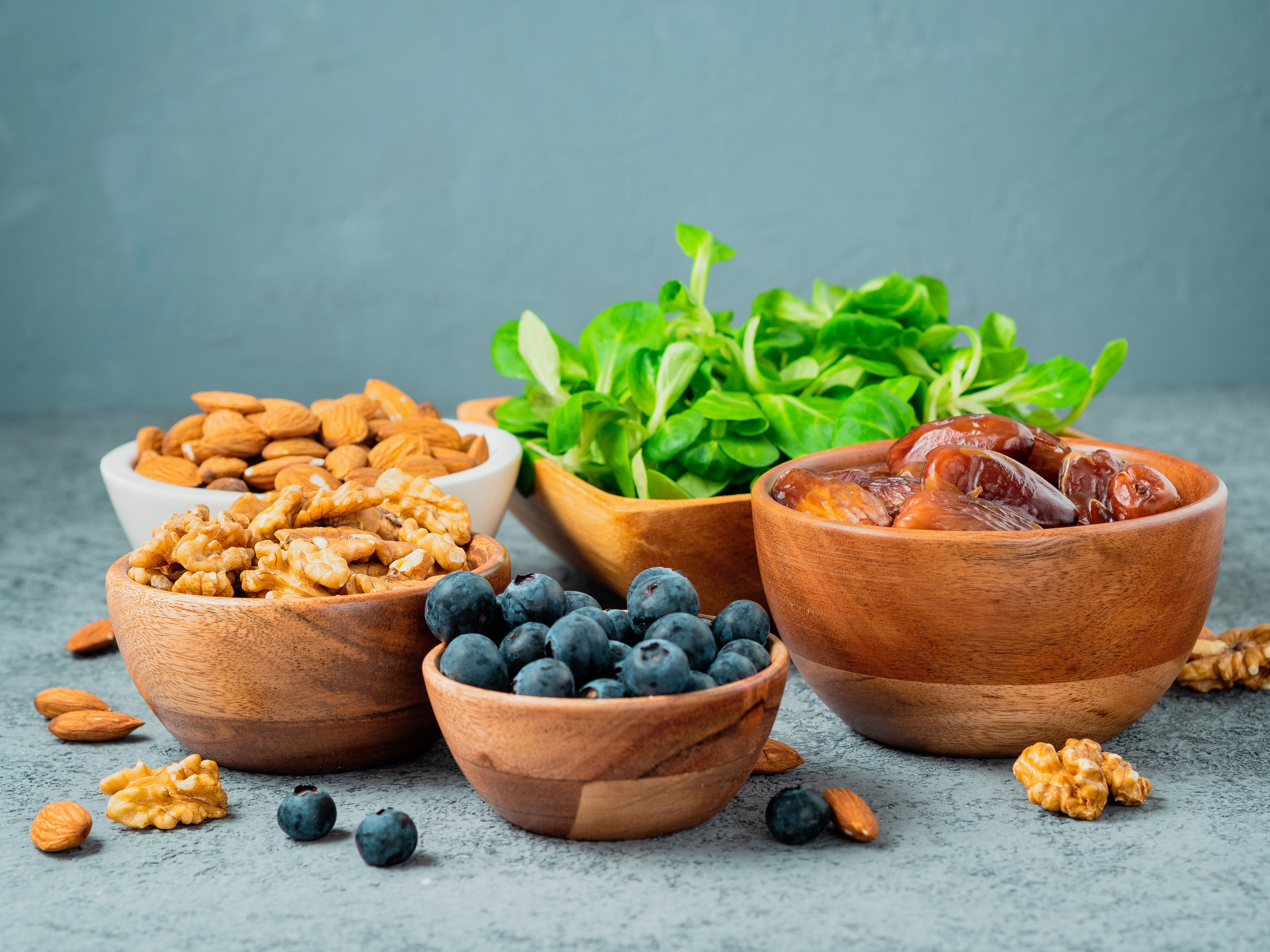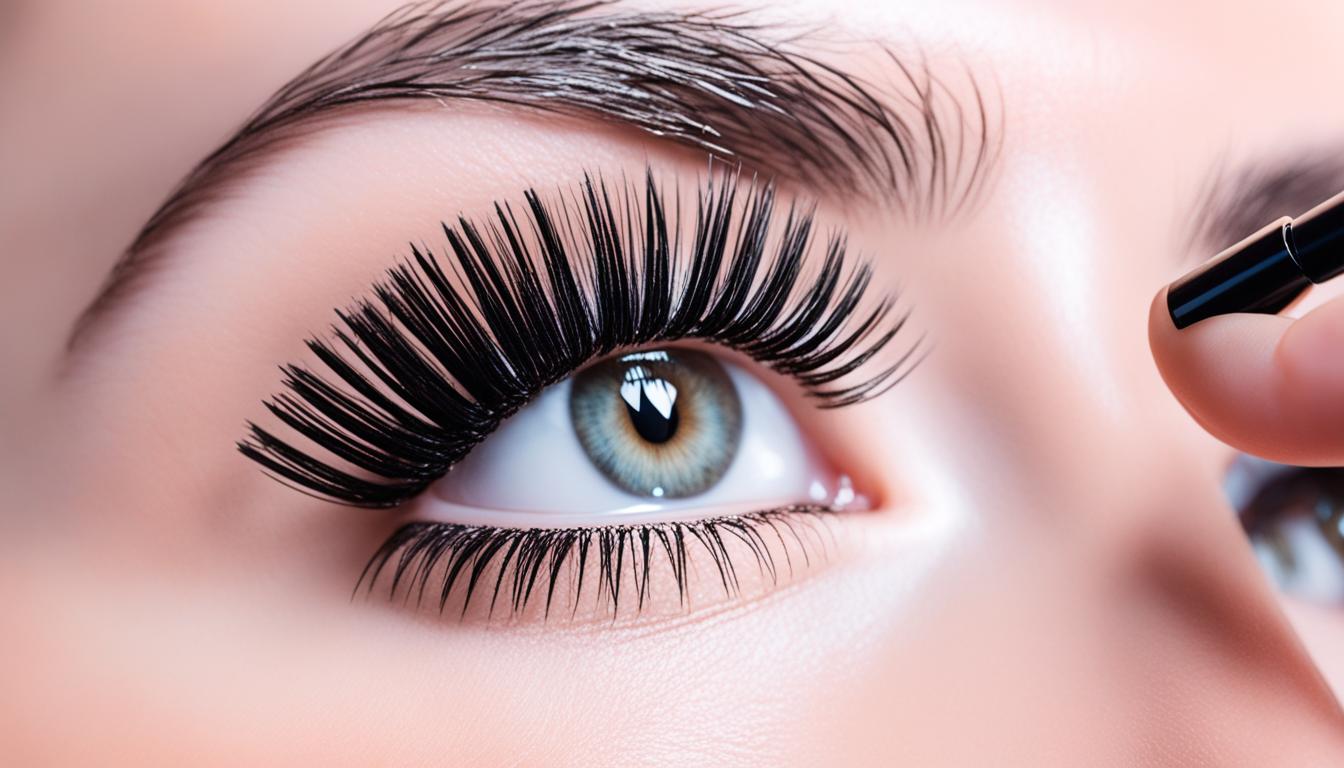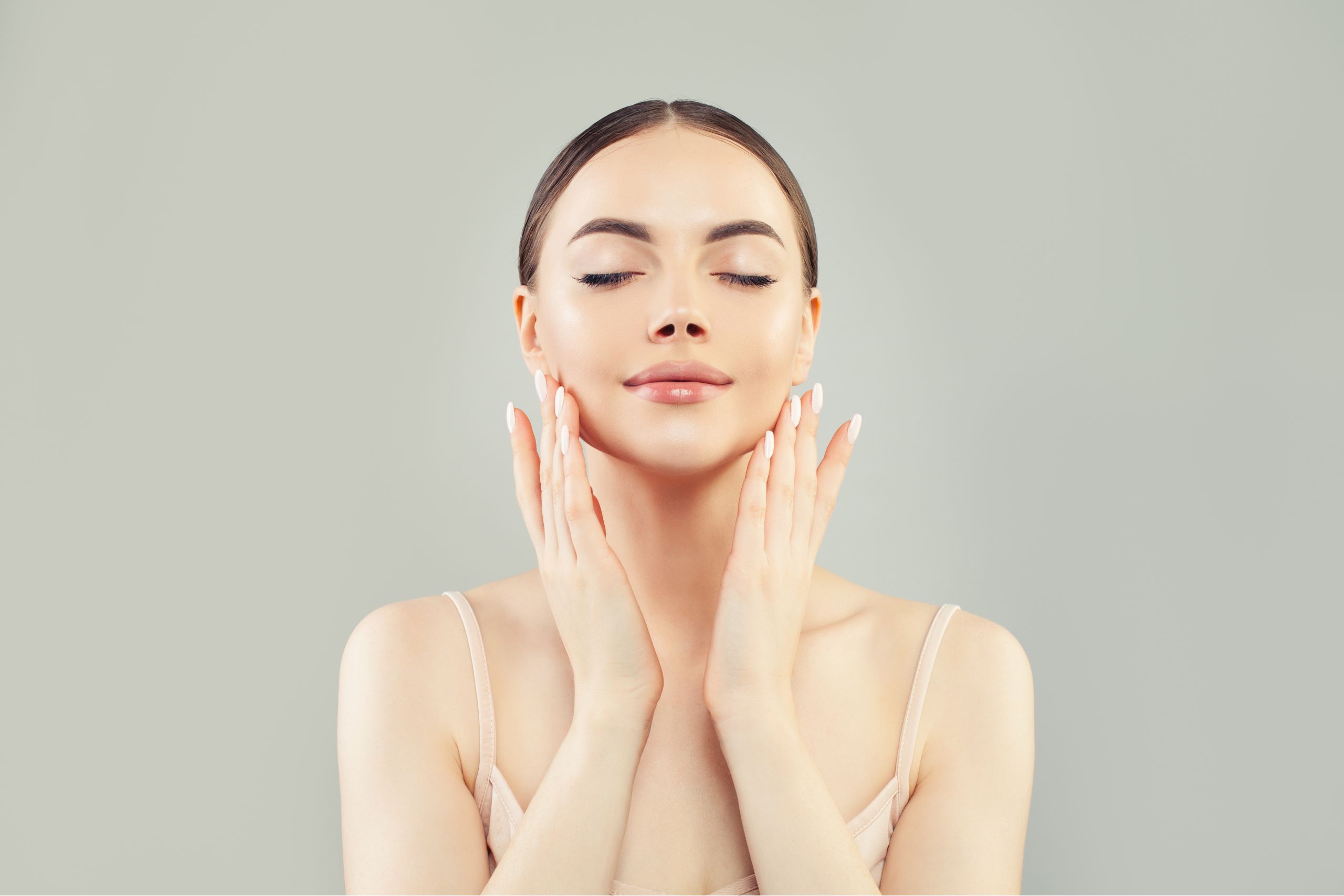If you’re experiencing thinning or shedding, you’re likely searching for how to prevent hair loss. It’s not just about vanity; it’s about your confidence and overall well-being. Fortunately, tackling hair loss isn’t a journey you have to embark on alone. This guide is packed with natural remedies for hair loss, a robust hair care routine to prevent hair loss, and tips distilled from expert studies and research.
Whether your hair loss is due to genetics or lifestyle, you can make strides in preserving your hair’s natural lushness. From dietary adjustments to the integration of efficacious hair care products, our strategies are designed to fortify your hair against loss and encourage optimal health. Ready to revitalize your hair? Let’s dive in.
Key Takeaways
- Discover natural and effective strategies to combat hair loss.
- Learn how specific dietary changes can influence hair health.
- Understand the importance of a consistent hair care routine.
- Explore scientifically backed treatments and supplements for hair retention.
- Gain insights into the latest research on hair loss prevention and restoration techniques.
- Realize the impact of lifestyle adjustments on preventing hair loss.
Understanding the Root Causes of Hair Loss
When you’re exploring lifestyle changes to prevent hair loss, getting to the root of the issue is an essential step. It’s important to recognize that hair loss isn’t just a cosmetic concern—it can stem from a complex interplay of genetic, nutritional, and psychological factors. By understanding the underlying causes, you can identify effective ways to combat hair loss and find the best products for preventing hair loss that suit your specific needs.
Genetic Influences and Aging
Genetics can predetermine the likelihood of experiencing hair loss, with conditions like androgenetic alopecia impacting a significant portion of the population. As you age, these genetic factors might become more pronounced, leading to increased hair thinning and loss.
Medical Conditions and Nutritional Deficiencies
Medical conditions and nutritional deficiencies are also prominent culprits in hair loss. A lack of essential nutrients, such as protein and amino acids, which are vital for hair structure and growth, can impair your hair health. Addressing these through diet modification can play a crucial role in preventing further hair loss.
The Impact of Stress and Hormonal Changes
The connection between stress, hormonal changes, and hair loss is undeniable. Stressful life events can trigger conditions like telogen effluvium, causing temporary hair shedding. Similarly, hormonal fluctuations during life stages such as pregnancy or menopause can affect your hair’s life cycle and health.
| Factors | Contributions to Hair Loss | Preventative Measures |
|---|---|---|
| Genetic | Inherited propensity for hair thinning and baldness | Minoxidil, laser therapy |
| Nutritional Deficiencies | Lack of key nutrients affecting hair strength and growth (e.g. iron, protein) | Dietary changes, supplements |
| Stress and Hormonal | Excessive shedding due to emotional or physiological stress | Stress management techniques, hormonal therapies |
Optimizing Your Diet for Healthy Hair
When you think about maintaining a lush, vibrant mane, your diet might not be the first thing that comes to mind. However, it’s a cornerstone for cultivating healthy hair from the inside out. A strategic diet for healthy hair can be a natural remedy for hair loss, offering nourishing benefits that rival even the most advertised hair care products.
The Power of Protein and Amino Acids
Proteins and amino acids are the foundation of hair, as keratin—a type of protein—is what hair is primarily made of. Your locks crave these building blocks. Foods like eggs, nuts, and lean meats not only promote hair structure but also bolster the strength of your strands, making them less susceptible to breakage.
Iron, Zinc, and Fatty Acids: Crucial Nutrients
Iron plays a pivotal role in your body’s red blood cell production, carrying oxygen to your cells, which includes those that stimulate hair growth. Reach for spinach and lentils to boost your iron levels. Similarly, zinc supports hair repair and growth. Seafood options like oysters and crab are zinc powerhouses. Lastly, don’t forget about omega-3 fatty acids—known for their anti-inflammatory properties—found in fish like salmon, which can improve scalp health.
Embracing the Mediterranean Diet for Hair Vitality
The Mediterranean diet, with its emphasis on vegetables, nuts, and herbs, isn’t just good for your heart; it’s also one of the natural remedies for hair loss. This diet supports hair retention, especially useful in combating pattern baldness. Swap out heavy carbs for olive oil, fruits, and whole grains to see the potential benefits in your hair’s health. Focus on integrating these fresh, nutrient-dense foods into your diet for a transformative effect on your hair.
Remember, while great hair products have their place, your diet for healthy hair plays an equally crucial role. It’s one of the most effective, natural remedies for hair loss and will pay dividends in not only how you feel but also in the vibrant appearance of your hair.
The Role of Vitamins and Supplements in Hair Retention
As you explore the best products for preventing hair loss, understanding the supplemental aid vitamins and minerals provide is key. While it’s no magic bullet, the right vitamins can support your hair health and complement your stress management efforts for preventing hair loss.
Navigating Hair Loss with Multivitamins
Multivitamins make navigating the path to healthy hair easier by combining essential nutrients that are often hard to get in adequate amounts from diet alone. Your hair health could benefit from a blend of vitamins A, B (particularly biotin), C and D, plus minerals like iron, selenium, and zinc.
The Debate Around Vitamin Efficacy for Hair Loss Prevention
There is a lively debate surrounding the efficacy of certain vitamins in preventing hair loss. While some studies show positive effects, others highlight the need for more research. Emergent fields suggest combating psychological stress with specific vitamins could indirectly be beneficial for hair health.
Third-party Verification of Supplements for Assurance
Given the unregulated nature of the supplement market, relying on third-party verified supplements adds a layer of trust to your choice. Organizations like NSF or USP certify the potency and purity of supplements, ensuring that when you seek the best products for preventing hair loss, you’re truly getting what the label promises.
| Vitamin/Mineral | Benefit for Hair | Recommended Dosage* | Stress Management Connection |
|---|---|---|---|
| Biotin (Vitamin B7) | May improve hair strength and thickness | 30-100 mcg | Supports energy metabolism reducing fatigue-related stress |
| Vitamin D | Potential role in the hair production process | 15 mcg (600 IU) | Low levels linked to increased stress and mood disorders |
| Iron | Essential for hair growth and repair | 8-18 mg | Anaemia related to iron deficiency can lead to stress symptoms |
| Zinc | Supports hair tissue growth and repair | 8-11 mg | Can influence hormonal balance and help reduce stress |
*Consult with your healthcare provider before starting any supplementation regimen to determine the right dosage for you.
“Remember, while supplements can help fill nutritional gaps, they work best alongside a balanced diet and effective stress management techniques for a holistic approach to preventing hair loss.”
Topical Solutions: Choosing the Right Products for Hair Care
Embarking on the journey to mitigate hair loss involves understanding the arsenal of topical solutions at your disposal. It’s essential to discern the specific purpose of each product—whether it’s fostering hair growth or nurturing hair health. Knowledge about products like Minoxidil and topical Finasteride could significantly enhance your scalp care regimen for preventing hair loss.

Distinguishing Between Hair Growth and Hair Health Treatments
When exploring hair care solutions, recognize that some are engineered to reactivate dormant hair follicles and promote regrowth, while others focus on maintaining the health and strength of existing hair. Ingredients matter here, and so does the treatment protocol for products aimed at combating androgenetic alopecia or simply providing nourishment to your scalp and hair.
The Benefits of Minoxidil and Topical Finasteride
Rogaine, a well-known over-the-counter product, leverages Minoxidil as its active ingredient to tackle the challenges of hair thinning. Its track record for revitalizing hair follicles has made it a cornerstone in hair loss prevention tips. Similarly, topical Finasteride has been clinically shown to improve hair density, prominently addressing male pattern baldness with fewer systemic side effects than its oral counterpart.
Hair Loss Prevention Tips: To integrate these topical solutions into your routine effectively, consider the following:
- Regular application as directed.
- Consistency over an extended period for visible results.
- Monitoring your scalp’s reaction to the products.
Combining diligent scalp care with the right products can create a conducive environment for hair preservation and regrowth, safeguarding the well-being of your tresses. Let’s examine these products more closely.
| Product | Active Ingredient | Purpose | Application |
|---|---|---|---|
| Rogaine (Minoxidil) | Minoxidil | Hair regrowth | Twice daily |
| Topical Finasteride | Finasteride | Improve hair density, combat pattern baldness | As advised by a healthcare provider |
Remember, patience is key to seeing the fruits of your hair care efforts. Both Minoxidil and Finasteride require time and consistency—traits necessary for success in your hair loss prevention journey.
How to Prevent Hair Loss: Holistic Scalp and Hair Practices
As you explore natural remedies for hair loss and consider lifestyle changes to prevent hair loss, holistic approaches offer a blend of traditional and modern insight. These practices focus on the health of both scalp and hair, looking at preventive measures that are not only effective but also entail a more natural interaction with your body’s healing processes.
Scalp Massages: Can They Stimulate Hair Growth?
Scalp massages may seem like a simple method, but they could play a significant role in hair health. By gently massaging your scalp daily, you encourage blood circulation to the hair follicles, which can promote hair growth and strength. While rigorous scientific backing is still forthcoming, anecdotal evidence suggests that frequent scalp massages may lead to thicker, more resilient hair over time.
Essential Oils and Natural Remedies for Hair Care
Stepping into the realm of natural remedies for hair loss, essential oils have gained attention for their potential hair growth properties. Ingredients such as rosemary, peppermint, and pumpkin seed oil aren’t just pleasing to the senses—they might be your scalp’s new best friends. These oils have been associated with stimulating hair regrowth and could be a soothing complement to your hair care routine. Remember, integrating coconut oil into your regimen could offer additional protection against hair shaft damage, reinforcing your fight against hair loss.
Here’s a look at some popular essential oils and how they can complement your holistic hair care practices:
| Essential Oil | Key Benefits | How to Use |
|---|---|---|
| Rosemary Oil | Stimulates follicles for hair growth and strengthens circulation | Massage a few drops combined with a carrier oil into your scalp regularly |
| Peppermint Oil | Increases circulation with a cooling effect, promotes hair growth | Blend with carrier oil and apply to the scalp, leaving on for 15-20 minutes before washing |
| Pumpkin Seed Oil | Rich in nutrients and antioxidants, may inhibit hair loss enzyme | Apply topically to the scalp or consider taking it as a supplement per the healthcare provider’s advice |
Starting your day with a scalp massage and integrating essential oils into your hair care routine might just be the natural boost your hair has been needing. Coupled with lifestyle modifications, these practices can provide a comprehensive approach to combatting hair loss.
Lifestyle Changes to Combat Hair Loss
Adopting a healthy lifestyle isn’t just about looking good—it’s also about keeping your hair on your head. Simple changes in your day-to-day life can make a big difference when it comes to hair loss prevention tips. Let’s break down some of the most crucial habits to incorporate for maintaining that luscious mane.
Stress Management Techniques for Hair Preservation
It’s no secret that stress can wreak havoc on your body, including your hair. High-stress levels can trigger a condition known as telogen effluvium, where hair falls out after a stressful experience. But there’s good news—stress management for preventing hair loss is possible. Activities like yoga, deep breathing exercises, and meditation can significantly reduce stress and promote a sense of calm, safeguarding your hair against stress-induced loss. Consistency is key, so making these practices a regular part of your routine is crucial for long-term benefits.

The Significance of Sleep and Exercise for Hair Health
Sleep isn’t just a luxury; it’s a necessity, especially for your hair. While you’re off in dreamland, your body is hard at work repairing and regenerating follicles. Make sure you’re getting enough z’s to let your scalp do its thing. Regular exercise also pumps up the blood flow to your scalp, feeding your hair roots with essential nutrients and oxygen. Remember, your hair thrives when your body thrives.
Avoiding Harmful Hair Styling Practices
Tight ponytails, scalding straighteners, and harsh chemical treatments are no friends to your follicles. These can cause traction alopecia, breakage, and other damage that could eventually lead to hair loss. Be gentle with your hair—choose looser hairstyles, opt for lower heat settings on hair tools, and embrace a gentler touch when styling. Your hair will thank you by sticking around longer.
| Stress Management Technique | Benefits |
|---|---|
| Yoga | Reduces cortisol levels, improves circulation to the scalp |
| Mindful Meditation | Enhances emotional well-being, lowers stress |
| Deep Breathing Exercises | Increases oxygen flow, promotes relaxation response |
Remember, while genetics and medical conditions can influence hair health, hair loss prevention often starts with the choices you make every day. By incorporating these hair loss prevention tips into your life, you’re not just preserving your hair but also investing in your overall well-being.
Professional and Over-the-Counter Hair Loss Treatments
If you’re noticing more strands in your brush than usual, you may be considering treatment options to slow down or reverse hair loss. Understanding when to take action and which products can potentially yield the best results is imperative for making informed decisions in your hair care journey. Exploring both professional and over-the-counter treatments is a key part of the process.
Understanding When to Seek Dermatologist Advice
It’s crucial to consult with a dermatologist when experiencing significant hair loss. A professional can assess your condition and advise on the most effective ways to combat hair loss. Whether it’s tailoring a treatment plan that includes prescription medication or recommending a rigorous routine with the best products for preventing hair loss, a dermatologist’s guidance is invaluable.
Hair Loss Medications: Efficacy and Side Effects
Common medications like minoxidil and finasteride have a track record of slowing hair loss and, in some cases, stimulating new growth. However, their success requires consistent use and an understanding of how to apply them effectively. Unequivocally, there could be side effects, and having a clear comprehension of what these might be is essential before starting any medication. Additionally, natural supplements containing saw palmetto or ginseng might be effective alternatives for improving hair quality and managing hormone-induced loss.
Beyond prescriptions, there are myriad other products available over-the-counter that promise relief from hair loss. Here’s a look at some popular choices and why they might be recommended:
| Product | Main Ingredient | Purpose | How It Helps |
|---|---|---|---|
| Minoxidil | Minoxidil | Hair Regrowth | Reactivates hair follicles to stimulate regrowth |
| Finasteride | Finasteride | Hormone Blocker | Prevents hormonal hair loss in men |
| Saw Palmetto Supplements | Saw Palmetto | DHT Blocker | May reduce DHT levels that can cause hair loss |
| Ginseng-Infused Products | Ginseng | Scalp Health | Supports hair follicles and improves hair vitality |
Your hair is a reflection of your overall health, and taking the right steps to protect it is part of maintaining your well-being. Exploring the best strategies and treatments for hair loss can pave the way for healthier, fuller hair. Remember, it’s not just about halting hair loss; it’s about nurturing your scalp and hair to promote long-term health.
Innovative Hair Restoration Techniques
As you search for the best products for preventing hair loss, it’s worth exploring the cutting-edge advancements that have reshaped hair restoration. The field has made significant leaps forward, offering hope and renewed confidence to millions.
The Emergence of Low-Level Laser Light Therapy
Low-Level Laser Light Therapy, also known as red light therapy, has emerged as a beacon of hope for those grappling with androgenetic alopecia. LLLT devices have been designed to deliver gentle, therapeutic wavelengths of light to your scalp, purportedly enhancing circulation and stimulating follicular activity. This non-invasive option could be a substantial pillar in your quest on how to prevent hair loss.

Advancements in Platelet-Rich Plasma (PRP) Treatments
Platelet-rich plasma (PRP) treatments stand at the forefront of hair regrowth innovation. Through a series of injections, your own plasma, rich in growth factors, is introduced to the scalp, aiming to invigorate dormant hair follicles. While further research is underway, the preliminary success stories provide a glimmer of optimism in addressing various types of hair loss.
| Technique | Target Condition | Procedure | Potential Benefits |
|---|---|---|---|
| Low-Level Laser Light Therapy (LLLT) | Androgenetic Alopecia | Non-invasive, regular sessions | Increases hair density and thickness |
| Platelet-rich plasma (PRP) | Alopecia Areata | Injections using the patient’s plasma | Stimulates growth in affected areas |
In your journey to fend off hair loss, these innovative treatments may serve as adjuncts or alternatives to traditional methods. Consider consulting with a healthcare professional well-versed in these techniques to understand their potential role in your hair care strategy.
Natural Remedies for Hair Loss
As you embark on a quest to strengthen your hair, consider the power of nature’s treatments. Venturing beyond conventional products can uncover effective ways to combat hair loss and enhance hair vitality. Let’s delve into some of the standout natural remedies that have captured attention for their potential benefits.
The Efficacy of Coconut Oil in Hair Protection
For years, coconut oil has been celebrated for its conditioning properties. Its unique ability to penetrate the hair shaft makes it exceptional in preventing protein loss—a key factor in hair strength and resilience. Whether you’re looking to shield your strands from the stress of styling or the sun’s UV rays, coconut oil can act as a natural fortress, maintaining your hair’s integrity.
Exploring Caffeinated Hair Products for Growth
Meanwhile, caffeinated hair products have been causing quite a stir in the realm of natural remedies for hair loss. Caffeine is not just for your morning jolt; when applied to the scalp, it’s thought to stimulate cell metabolism and potentially expedite hair growth. This dynamic ingredient could give popular hair loss treatments like minoxidil a run for their money, offering a botanical boost to your hair care regimen.
| Natural Remedy | Noted Benefits | Total Potential Uses |
|---|---|---|
| Coconut Oil | Combats protein loss, and protects against grooming damage and UV exposure. | Pre-shampoo treatment, conditioner, hair mask |
| Caffeinated Products | Stimulates hair follicle metabolism and may enhance growth. | Shampoos, conditioners, topical serums |
Embracing these natural remedies for hair loss could not only help protect your hair but also leave it feeling revitalized and full of life. As you explore the earth’s bountiful resources, remember that consistency is key—you’re nurturing your hair back to strength, one strand at a time.
The Science Behind Hair Growth Shampoos and Conditioners
When you’re assessing your hair care routine to prevent hair loss, it’s natural to wonder about the efficacy of the various shampoos and conditioners that line store shelves. These products are not just about cleansing; they’re packed with claims of nurturing your follicles back to life. But what’s the truth behind those bold promises? To ensure you’re investing in the best products for preventing hair loss, it’s important to sift through scientific insights and understand what benefits your strands.
Investigating Hair Growth Claims: Scientific Perspectives
Scrutiny from the scientific community offers both scepticism and validation for hair growth products. Ingredients such as piroctone olamine have gathered interest for their potential to improve hair density and scalp health. While some studies have shown these components can indeed stimulate hair growth, the results are not universal. As you consider incorporating these products into your regimen, keeping an eye on the latest research will help you make informed decisions about what might work for your unique hair type and situation.
Antioxidant-Enriched Products and Their Role in Hair Care
Antioxidants have become synonymous with combating ageing, and that extends to the health of your scalp and hair. These potent ingredients help to neutralize oxidative stress, a culprit known to contribute to hair loss. Finding the right antioxidant-enriched shampoo or conditioner could prove to be a pivotal part of your hair care routine. Yet, remember that while these products can be beneficial, they should complement a holistic approach to hair care, including diet, stress management, and avoiding harmful styling practices for optimal results.
FAQ
What are some natural remedies for hair loss?
Natural remedies for hair loss include essential oils like rosemary and peppermint, scalp massages to stimulate blood flow, and natural products like coconut oil to prevent protein loss and minimize damage.
Can my hair care routine prevent hair loss?
Yes, a careful hair care routine that avoids harsh chemicals, excessive heat, and tight hairstyles can significantly reduce hair loss and maintain the health of your scalp and hair.
How can I make lifestyle changes to prevent hair loss?
Lifestyle changes that can help prevent hair loss include managing your stress through meditation or yoga, ensuring adequate sleep, maintaining a balanced diet, and avoiding harmful hair styling practices.
What are the best products for preventing hair loss?
The best products for preventing hair loss often contain minoxidil or finasteride for genetic hair loss, and others like shampoos with antioxidants and natural ingredients that support scalp health and reduce inflammation.
Which diet is considered healthy for maintaining strong hair?
A Mediterranean diet rich in vegetables, and lean proteins like fish and chicken, nuts, and herbs, is considered healthy for maintaining strong hair, providing essential nutrients required for hair growth.
Are there effective ways to combat hair loss if it’s genetic?
Yes, effective ways to combat genetic hair loss include FDA-approved medications such as minoxidil and finasteride, low-level laser light therapy (LLLT), and platelet-rich plasma (PRP) treatments, along with maintaining a holistic hair care routine.
How does stress management help in preventing hair loss?
Stress management helps prevent hair loss by reducing stress-induced hormonal changes that can trigger hair-shedding conditions such as telogen effluvium. Techniques like mindfulness meditation and regular exercise can be particularly beneficial.
What role does scalp care play in preventing hair loss?
Scalp care is vital in preventing hair loss as a healthy scalp is the foundation for healthy hair growth. Regular cleansing to remove buildup, gentle massages to stimulate circulation, and nourishing with essential oils can all contribute to scalp health.
When should I consult a dermatologist for hair loss?
You should consult a dermatologist for hair loss if you notice significant hair thinning or bald patches, or if your hair loss is sudden. A dermatologist can assess the underlying causes and recommend appropriate treatments or medications.
Can vitamins and supplements help prevent hair loss?
Vitamins and supplements can help prevent hair loss if you have specific nutritional deficiencies. Supplements containing iron, zinc, vitamin D, and biotin are known to support hair health, but it’s important to get a professional’s advice before starting any new regimen.
What are the latest innovations in hair restoration techniques?
The latest innovations in hair restoration include low-level laser light therapy (LLLT) for increasing hair density and platelet-rich plasma (PRP) treatments to promote hair growth in areas affected by hair loss. These techniques are cutting-edge and have shown promising results in various studies.
Are caffeinated hair products effective for hair growth?
Caffeinated hair products may stimulate hair follicle metabolism and growth, potentially providing a similar effect to minoxidil. However, further scientific research is required to fully establish their effectiveness for hair growth.
How do shampoos and conditioners contribute to hair growth?
Some shampoos and conditioners contain active ingredients like antioxidants, keratin, and natural extracts that can support hair growth by improving scalp health and minimizing hair breakage, though individual results may vary.





